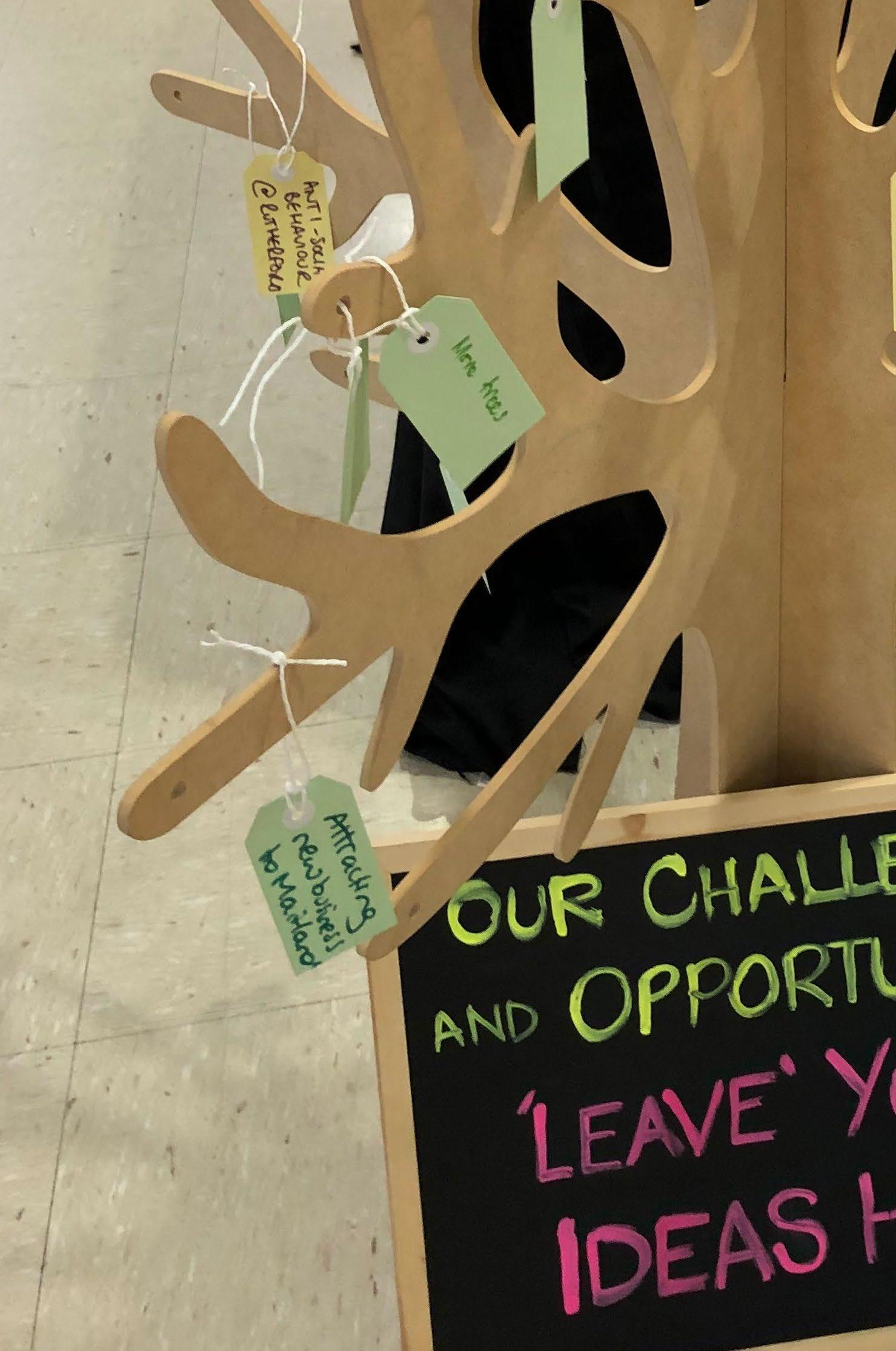
3 minute read
Environment
from On the Move
LOAD OF COMPOST SUPPORTS HOME GARDENERS
Contributing to Council Objective 8.3.1 To implement waste management strategies for the city designed to minimise costs and environmental impacts
Maitland residents embraced the garden organics bin with more than 25,000 tonnes of vegetation collected since the start of the service in March 2017. Vegetation is processed at a composting facility located at Tea Gardens where it is shredded and then placed in windrows that are turned regularly for 6 months. The lengthy composting process ensures weed seeds and pathogens are destroyed and the end products are of the highest quality. The finished compost products are then sold to home gardeners, landscapers and for applications on sporting fields, farms and orchards. Applying compost has been shown to enhance soil health that promotes increased plant growth, improves crop yields, retains soil moisture and reduces the need for apply fertilizer. Council promotes the use of compost through regular compost give aways. These events are promoted on Council Facebook, so keep an eye for the next one.
ENVIRONMENTAL NEWSLETTER PROVIDES ACTIVITIES DURING LOCKDOWN
Contributing to Council Objective 10.3.1 To provide opportunity for residents to participate in environmental education and awareness programs and projects
During COVID-19 restrictions, April to June 2020, the Maitland Green Newsletter was provided to enviornmental email subscribers and on Council’s website to inform on environmental opportunities that could be undertaken at home during the lockdown period. Post restrictions, the newsletter has returned to quarterly production and continues to provide information and education on environmental issues.
HUNTER WATER GRANT TO FUND EDUCATIONAL RESOURCES
Contributing to Council Objective 10.3.1 To provide opportunity for residents to participate in environmental education and awareness programs and projects
A grant of $3,410 from Hunter Water will deliver an environmental education program for Year 5 and 6 students across Maitland. The program will be focused on the reduction of water usage and protection of local waterways. A series of skits has been developed to support students to perform in front of their peers using real props and images, and to allow discussion on water usage. A series of math’s activity pages will encourage students to explore daily water usage. Program kits will be made available to schools in the coming months.
SCHOOL PROGRAMS EDUCATE OUR KIDS
Contributing to Council Objective 10.3.1 To provide opportunity for residents to participate in environmental education and awareness programs and projects
Council is working with Linuwel School, Kindy Patch Emmas and King Street Community Preschool, East Maitland, to educate students on stormwater and littering. An education kit specific to the local stormwater catchment has enabled students and teachers to explore the local catchment and identify what they can do to protect local water quality. Additionally, the Maitland Schools Environment Program provided resources to undertake environmental projects within school grounds. While COVID-19 restrictions impacted the 2020 Community Tree Planting day, 530 seedlings were provided to 15 schools for planting in playgrounds as part of Schools Tree Day. Council also continued to distribute a quarterly school’s newsletter to educate and inform on environmental activities.
CAMPAIGN RAISES AWARENESS OF ILLEGAL DUMPING
Contributing to Council Objective 10.3.1 To provide opportunity for residents to participate in environmental education and awareness programs and projects
Illegal dumping activities negatively impact the local environment and cost Council over $40,000 per year to clean up. A communications program, held with the Regional Illegal Dumping (RID) Squad, was held in June. The RID Squad specialises in the prevention of illegal dumping through monitoring known hotspots, investigating complaints, and taking action against offenders. The communication campaign ran for several weeks with further campaigns planned over the next twelve months through Facebook, the media, bus backs, articles in the Green Communities Newsletter and other communications forums.




